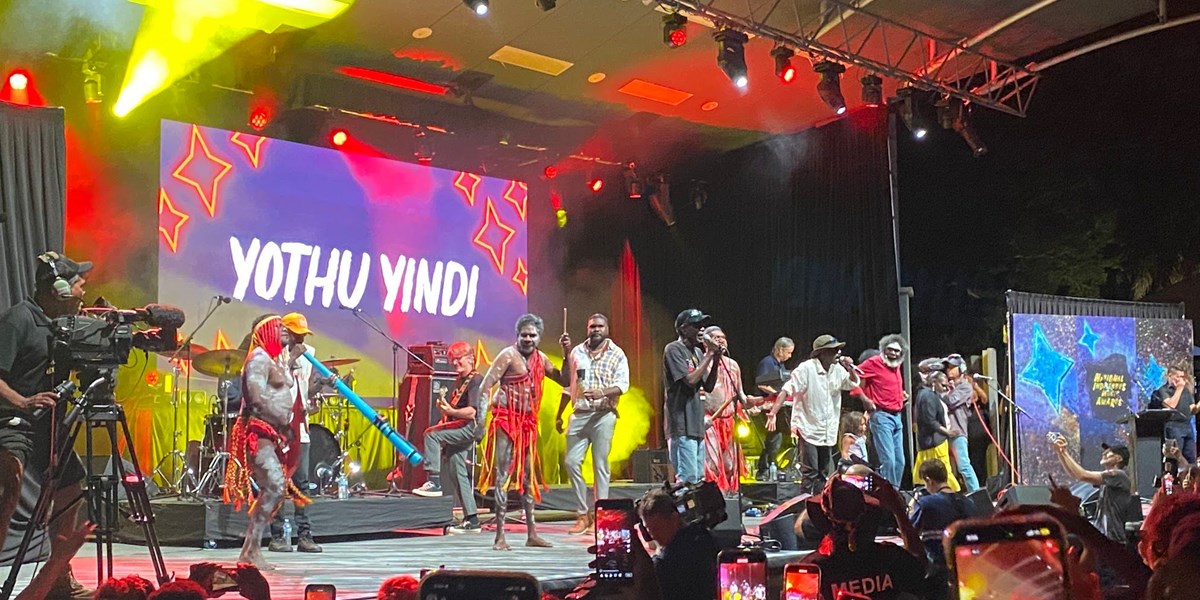Thursday, October 12, 2023
Let Them Speak: Indigenous Voice Referendum
By Seth Jordan
Australia is holding a referendum that may lead to its Indigenous people gaining political recognition. Seth Jordan reports from two of Australia’s most important Indigenous events on the opposing campaigns

Yothu Yindi at the NIMAs © Music NT

Register now to continue reading

Thanks for visiting the Songlines website, your guide to an extraordinary world of music and culture. Sign up for a free account now to enjoy:
- Free access to 2 subscriber-only articles and album reviews every month
- Unlimited access to our news and awards pages
- Our regular email newsletters

